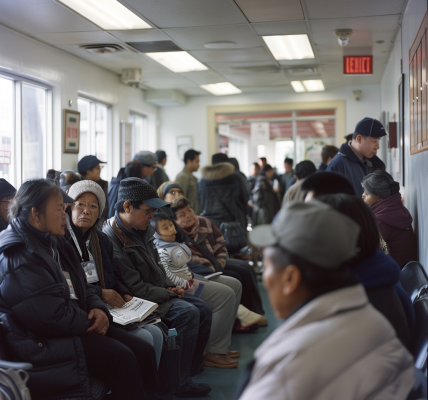Recent research highlights the efficiency of fecal immunochemical testing (FIT) for colorectal cancer screening in younger adults, particularly those aged 45 to 49 years. This retrospective cohort study analyzed the completion rates and outcomes of FIT among individuals in this age group compared to those aged 50 and older, revealing some intriguing findings.
Colorectal cancer (CRC) remains a significant health concern globally, contributing to high rates of morbidity and mortality. Effective screening is crucial for early detection of pre-cancerous lesions and cancer in asymptomatic individuals. Traditionally, screening for CRC has been recommended to begin at age 50 for average-risk individuals. However, recent shifts in guidelines from organizations such as the American Cancer Society and the United States Preventive Services Task Force now suggest initiating screening at age 45 due to a rising incidence of the disease in younger populations.
This study focused on individuals aged 45 to 49 years, examining their experiences with FIT and subsequent colonoscopy follow-ups. The research was conducted across three Kaiser Permanente health systems, providing a comprehensive look at the screening process in this demographic.
One of the key findings of the study indicated that the completion rates for FIT were slightly higher among individuals aged 45 to 49 years compared to those aged 50 years and older. This suggests that younger patients may be more engaged in their health care and more willing to participate in screening programs. However, it is important to note that completion rates did exhibit considerable variation across different health care sites.
In terms of FIT positivity, younger individuals had slightly lower positivity rates than their older counterparts. This could imply that while younger patients are more likely to undergo testing, the likelihood of returning a positive result is somewhat reduced. Despite this difference in positivity rates, the study found that the rate of colonoscopy receipt following a positive FIT was comparable between both age groups.
Upon further examination through colonoscopy, the detection rates of colorectal cancer were similar between the two age groups. However, the younger cohort exhibited a slightly lower detection rate of any adenomas, which are precursors to colorectal cancer. This finding raises questions about the prevalence of pre-cancerous lesions in younger individuals and whether current screening strategies are adequately addressing this population’s needs.
It is essential to acknowledge the limitations of this study. The findings are based solely on data from select Kaiser Permanente systems, which may restrict the applicability of the results to broader health care settings. Additionally, the low rates of neoplasia events in the sample resulted in wide confidence intervals for specific risk ratio estimates, indicating that further research is needed to draw more definitive conclusions.
Overall, the results of this study suggest that the yield of colorectal cancer screening in adults aged 45 to 49 years is comparable to that of individuals aged 50 years and older. As health care providers and organizations continue to refine their screening recommendations, this evidence could play a crucial role in shaping future practices and policies aimed at reducing the burden of colorectal cancer in younger populations.
As awareness of the importance of early detection grows, it is vital for both physicians and patients to stay informed about the latest guidelines and research findings related to colorectal cancer screening. The ongoing dialogue surrounding the appropriate age to begin screening will likely evolve as more data becomes available, ultimately aiming to improve health outcomes for all individuals at risk of colorectal cancer.





